

Studying physics at SNC will challenge you to explore many of the most fundamental questions about the nature of matter, energy and the universe. You’ll develop analytical, computational, critical thinking and deductive reasoning skills, and learn how to apply the scientific method to your laboratory work. In fact, all of our physics courses have accompanying labs in which you’ll develop the experimental and computational skills that are currently in high-demand in graduate research laboratories, government research facilities and the private sector.
SNC offers two concentrations for your Bachelor of Science degree in physics. Our general physics concentration provides students with a thorough understanding of the key principles in physics, while our engineering physics concentration combines an applied physics curriculum with elective courses in biology, chemistry, computer science, geology and mathematics to best prepare you for graduate study or employment in an engineering or technical field. In addition, you can also supplement your physics degree with secondary education certification.
Combining another SNC major with a minor in physics allows you to develop strong analytical and problem-solving skills and a solid grasp of the basic principles that govern the physical world — skills that are useful in many fields and highly sought after by employers.
At SNC, you’ll have the opportunity to conduct collaborative research alongside your professors in the Gehl-Mulva Science Center’s state-of-the-art labs. The skills you'll acquire and the personal relationships you’ll build with our faculty can open doors to internship positions sponsored by the National Science Foundation and the U.S. Department of Energy — and at some of the most prestigious graduate schools in the country.
Recent SNC physics graduates have been awarded fully-funded graduate assistantships at the University of Wisconsin, University of Notre Dame, Marquette University, Old-Dominion University and the College of William and Mary. They've performed research at Argonne National Laboratory, the Thomas Jefferson National Accelerator Facility, Sandia National Laboratories and the SLAC National Accelerator Laboratory.
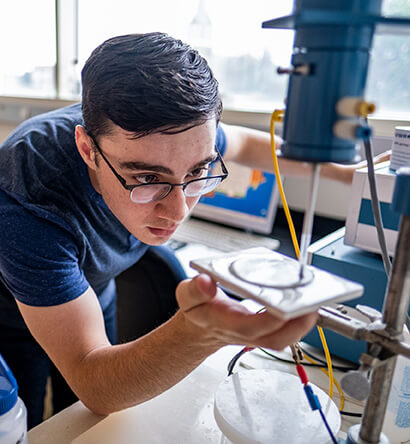
Uncover new knowledge by engaging in collaborative research projects with your professors.
Learn more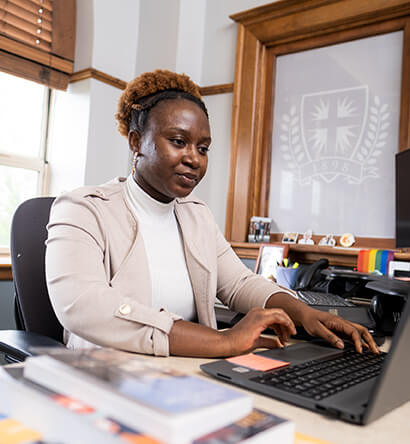
Explore the field of physics through internships, and find out what it’s like to put your academic training to work.
Learn more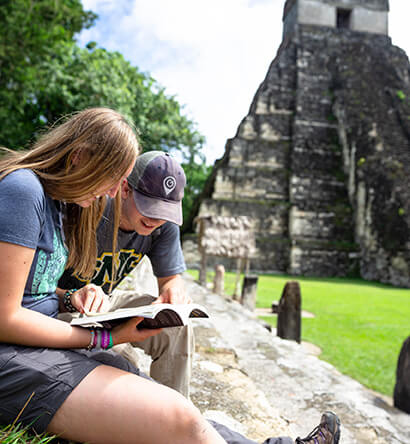
Learn from the global scientific community through SNC’s study abroad programs.
Learn more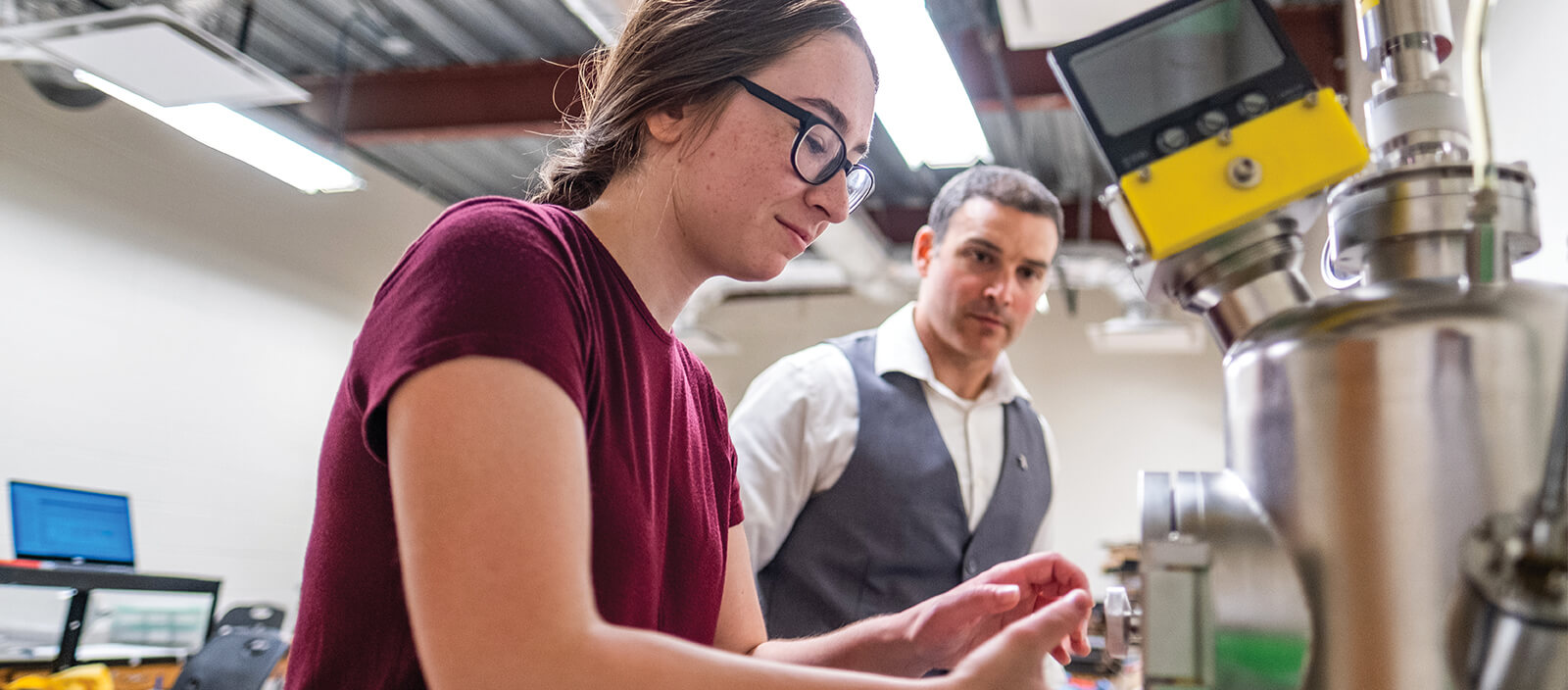
If there’s one thing that SNC professors and instructors have in common, it’s a passion for teaching and sharing their expertise. You’ll also find them dedicated to providing personalized guidance that supports your academic and career aspirations. Discover the distinguished scholars you’ll be learning from.


A physics degree gives you critical problem-solving and quantitative skills that can be applied to almost any profession. Physics alumni from SNC have found careers as:
Want to go to grad school? With the help of SNC's strong prep and placement efforts, about a third of SNC physics majors pursue advanced study in astrophysics, medicine, mechanical engineering, mathematics, computer science or physics. They’ve found success at:
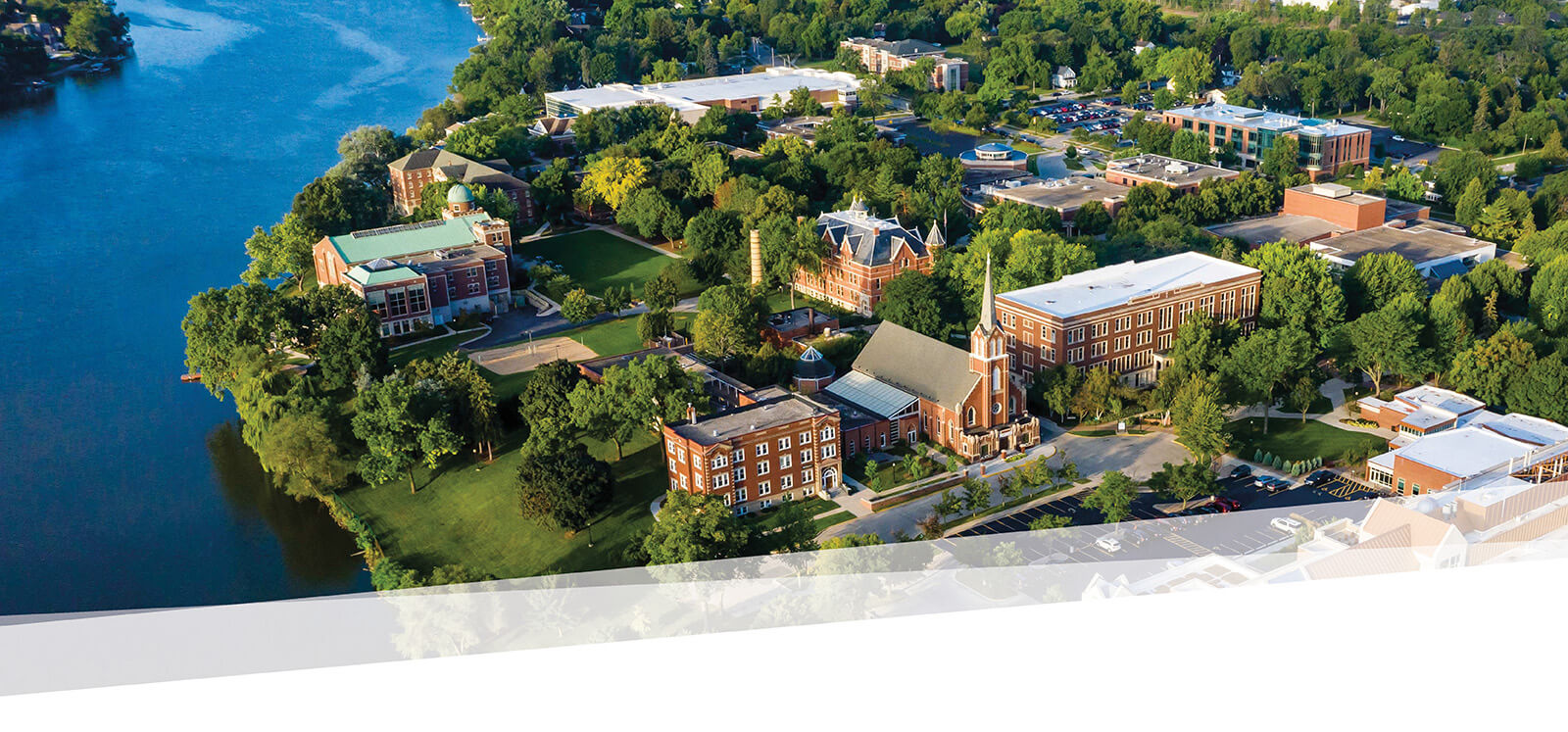
Campus location
Ariens Family Welcome Center
310 College Ave.
De Pere, WI 54115
Hours of operation
Monday-Friday
8 a.m.-4:30 p.m.
We’re also available by appointment.
Mailing address
Office of Admission
St. Norbert College
Ariens Family Welcome Center
100 Grant St.
De Pere, WI 54115